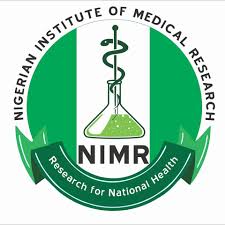 | |
 | |
| Founder | Federal Government of Nigeria |
|---|---|
| Type | Professional organization |
| Focus | Research in diseases of public health importance |
| Location | |
Area served | Nigeria |
| Members | 2,000+ |
| Owner | Federal Republic of Nigeria |
Key people | Professor Babatunde Lawal Salako [1] [2] |
| Website | http://www.nimr.gov.ng/ |
The Nigerian Institute of Medical Research (NIMR) in Yaba, Lagos state, Nigeria is a medical research institute established by the Federal Government of Nigeria through the research institute establishment act of 1977, to promote national health and developments. Until the establishment of National Institute for Pharmaceutical Research and Development (NIPRID) in Abuja, it was the only institute in the country specifically dedicated to medical research.[ citation needed ] [3] The current director-general of the Nigerian Institute of Medical Research is Professor John Oladapo Obafunwa, appointed by President Tinubu. [4]